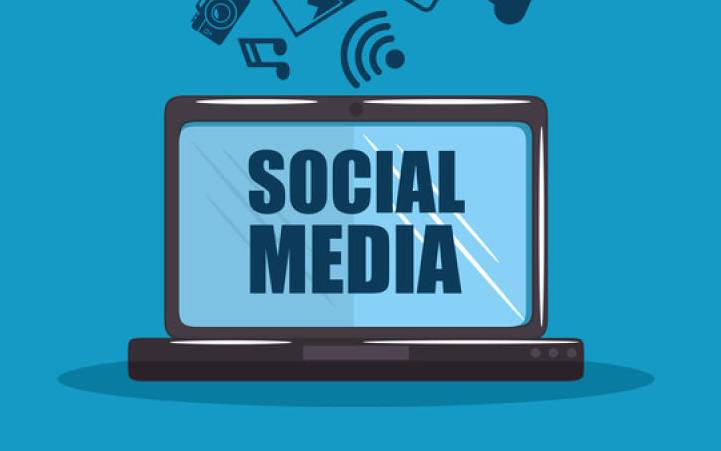
Figure this out; one morning you wake up to find a message in your WhatsApp page with a photo of
yourself in a “compromising” situation. A message follows from an anonymous person demanding
money or else the photo is circulated to the public- and to your spouse.
Of course, if you have a reputation to protect you might be tempted to just pay and forget about it. This might seem farfetched but it happens to thousands of people every day.
The above goes to highlight the downside of social media which many have praised as an avenue for
enlightened politics where accurate information on governance can be passed around. Alas, social media is now being undermined by the rabid and widespread dissemination of lies, innuendo and poison.
And so a beautiful thing risks being ruined. I have become a habitual consumer of the digital platform where I have up-to-the-second updates of what goes on around the world. At the click of a button, millions can see what one has posted.
The other beauty of social media is it is hardly regulated and this means it is easier for dissenting voices to express their views. Social media is the new platform where lobbying for a good cause or advocacy is undertaken. The 2010 Arab Spring succeeded to a large extent, thanks to social media. Like a double-edged sword, any good thing can have a negative consequence.
Increasingly, people are beginning to lose faith in social media because of its corrosive effects on society. Two years ago, President Uhuru Kenyatta shut down his personal Twitter and Facebook accounts after it was hacked- (some have even suggested that it was because of the incendiary comments from haters every time he posted something).
Recently the Russian TV RT channel ran an editorial titled; “Fake or Deepfake? Why modern technology leaves us with little choice but to revive critical thinking”. “How can we judge,” the writer wrote “reality in the post-deepfake world, where what we see is not what we get?”
Cases of cyberbullying are on the rise with body-shaming the most prevalent. In America, young girls have proved more susceptible to this because most of them don’t know how to manage this brutal form of psychological violence.
Just recently, we saw videos doing rounds on social media of prominent Kenyan personalities whose faces were superimposed in a pornographic video. Besides the embarrassment, such acts cause untold psychological trauma to victims and their families. Some lead to divorce or even death.
Regulators are scratching their heads wondering what needs to be done to stop the trend. Sadly, they don’t seem to have a solution for this type of violence. Many of the people being extorted suffer in silence.
Yet, the police department lacks the equipment needed to bust these smart criminals. Police have been accused of chasing shadows and even where there has been a commission of crime, they lack the evidence needed to nail the culprits in court.
The inability to distinguish the truth from half-truth or fake stories will seriously damage the good purpose intended when this medium was invented. Worst of all, the perpetrators are faceless. Even when a complaint is lodged, investigators find it difficult to track and apprehend the culprits because a lot of them use pseudonyms to hide their identity.
Smear campaigns
In the business world, adversarial social media campaigns have negatively affected businesses. Sales have been hit while some companies have had to shut their doors because of the vicious smear campaigns and negative publicity.
Additionally, the use of algorithms has helped to shape perceptions which can easily be influenced by biased opinions. Perhaps what we need to fear most is how social media can be used to subvert the will of the people in a democratic process like elections and referendum.
In truth, social media wizards have influenced the public’s choices by spreading untruths and amplifying anger, thereby undermining the citizens judgment and amplifying division.
For example, there are fears that social media was used to sway the outcome of the 2016 Brexit
a referendum in Britain.
Even here in Kenya, there were claims that Cambridge Analytica used Facebook data to influence the 2017 General Election in favour of Jubilee.
Obviously, the famous one is the improbable election of Donald Trump in 2016. His critics believe Russia played dirty tricks on his challenger Hillary Clinton.
Mr Guleid is the CEO of Frontier Counties Development Council. [email protected]
 The Standard Group Plc is a multi-media organization with investments in media
platforms spanning newspaper print operations, television, radio broadcasting,
digital and online services. The Standard Group is recognized as a leading
multi-media house in Kenya with a key influence in matters of national and
international interest.
The Standard Group Plc is a multi-media organization with investments in media
platforms spanning newspaper print operations, television, radio broadcasting,
digital and online services. The Standard Group is recognized as a leading
multi-media house in Kenya with a key influence in matters of national and
international interest.
 The Standard Group Plc is a multi-media organization with investments in media
platforms spanning newspaper print operations, television, radio broadcasting,
digital and online services. The Standard Group is recognized as a leading
multi-media house in Kenya with a key influence in matters of national and
international interest.
The Standard Group Plc is a multi-media organization with investments in media
platforms spanning newspaper print operations, television, radio broadcasting,
digital and online services. The Standard Group is recognized as a leading
multi-media house in Kenya with a key influence in matters of national and
international interest.










